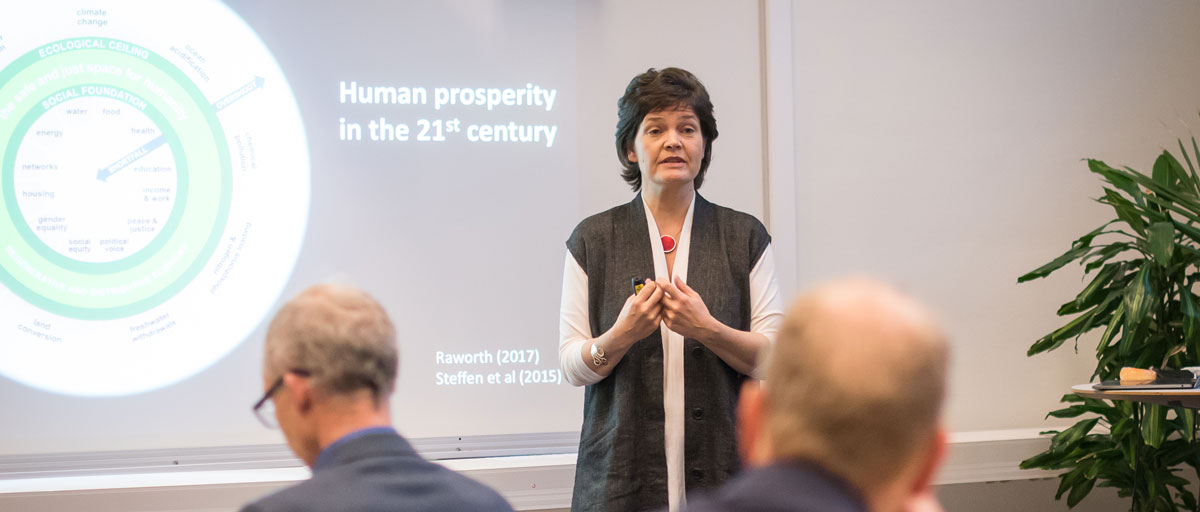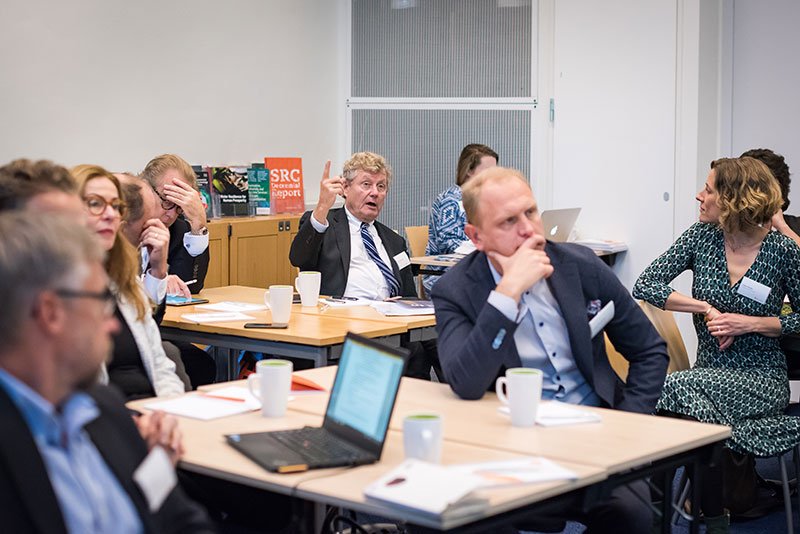Bildtext får vara max två rader text. Hela texten ska högerjusteras om den bara ska innehålla fotobyline! Photo: B. Christensen/Azote
EXECUTIVE TRAINING
Where sustainability means business

The executive programme in resilience thinking is tailor-made for business leaders to take a deep dive into the megatrends shaping our planet and global economy. Photo: M. Sparreus/Azote
• The programme provides strategic insights from the latest science on global change and planetary boundaries
• Helps analyse how companies influence and is influenced by global megatrends
• Offers insights on how to improve long-term strategy for creating sustainable business value
In order for sustainability issues to permeate the business world, CEOs and board members need to develop their own understanding of these issues. A centre executive programme helps unleash their potential to contribute to a prosperous planet
The beginning of April 2019 marked the end of the first round of the centre's executive programme Transformative Business Leadership for a Prosperous Planet. 16 senior executives and board members from the Swedish business community participated in the programme, which was organised in collaboration with the Pontus Schultz Foundation.
The aim was to provide new knowledge from the latest research on sustainability, climate and resilience, as well as concrete tools to enable the participants to apply this knowledge in their own businesses. The programme is intended to help the transition towards long-term sustainability and profitability in business. Lisen Schultz, programme director and founder of the Pontus Schultz Foundation, talks about an increased interest in sustainability issues in the business community.
We want to connect the knowledge of academia with the drive of the business world. The transformation that humanity is facing has to build on the latest knowledge
Lisen Schultz
High-level participants, world-leading speakers
Despite extensive interest, the limit was set to 16 participants to make sure the programme would be tailored to the participants’ needs. The admission criteria were tough. The aim was to reach the executives with the greatest capacity to make a difference.
Participants included CEOs and board members from for example Scania, Investor, Swedbank and Stora Enso. With such a line-up, it was important to have the speakers to match. On the three occasions that the participants were gathered, they met world-leading scientists, business leaders and entrepreneurs such as Johan Rockström, director of the Potsdam Institute for Climate Impact Research and former director of the SRC; Carl Folke, science director at the SRC and the Beijer Institute; Paul Polman, CEO of Unilever; Amy Luers, executive director of the global research and innovation initiative Future Earth, and Pavan Sukhdev, president of WWF International.

Programme participant Jacob Wallenberg (chair, Investor) commenting with Henrik Henriksson (CEO, Scania) reflecting and Lisen Schultz (programme director, SRC) listening. Photo: M. Sparreus/Azote
Translate knowledge into action
According to Schultz, the programme exceeded expectations. Now it is up to the participants to translate their knowledge into action. Several companies have already started to work on setting science-based goals in line with the Paris climate agreement in their operations, and there are examples of circular resource flows being given priority within companies.
As for the executive programme, a second edition will run again in autumn 2019. Submissions of interest can be done via the programme website.
Moreover, an alumni network has been created, giving those who have completed the programme an opportunity to continue to meet, exchange experiences and be kept up-to-date with the latest within sustainability science.






